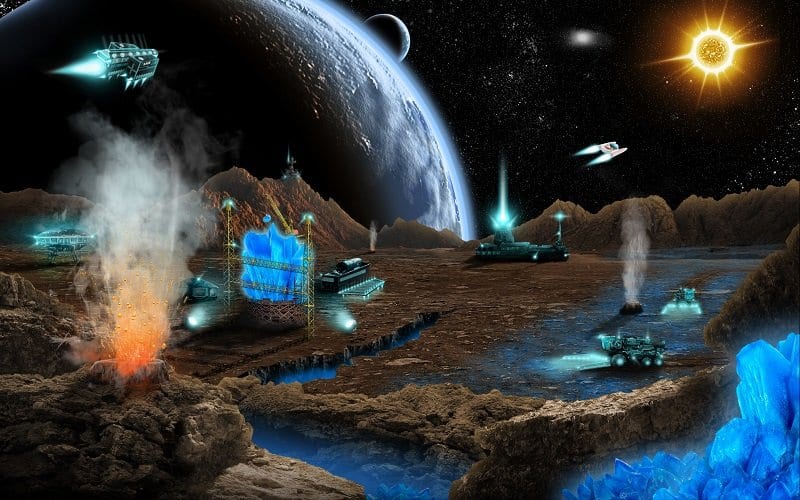As countries and corporations prepare for space mining, are we prepared for what is to come?
Introduction
As our planet contends with resource scarcity, a potential solution can be found by traversing the great unknown — outer space. Metals, minerals, and energy sources have been found to exist in near-infinite quantities within our solar system, and political and commercial interest in space mining is growing as the concept is increasingly becoming realistic and achievable. In 2017, a feasibility study by Laszlo Kestay, a research geologist at the U.S. Geological Survey’s Astrogeology Science Center, found that the projected water and metal resources of near-Earth asteroids are “immense when compared to current needs…[the projections] could sustain a million-fold increase in human activity in space for a million years.” The U.S. Geological Survey is actively working on developing the methodology for space resource assessments, which would provide much-needed information to guide policy and investment decisions in the not-too-distant future. Key questions remain regarding the technology required to conduct space mining and the policies that will govern this new frontier.
Acknowledging this emerging reality, Risk Group initiated a much-needed discussion on Space Mining with Daniel Faber, a Pioneer of Space Technologies and Mining, on Risk Roundup.
Disclosure: I am the CEO of Risk Group LLC.
Daniel Faber, a pioneer of space technologies and mining, President and CEO of Heliocentric Technologies, and advisor to the United States’ National Space Society participates in Risk Roundup to discuss Space Mining.
The Next Gold Rush
Serious plans are being made for the mining of the moon and nearby asteroids using smart autonomous robots and humans. At the top of the mining, resource list is the exploration of water, which is a prerequisite for keeping a space colony alive; without water, there is no way to move forward with space exploration. In addition, water could also be broken down into hydrogen and oxygen to form rocket engine fuel.
Blue Origin/Amazon CEO Jeff Bezos recently announced plans to extract water from the moon, which would allow for greater access to hydrogen, carbon, silicon, metals, and other critical materials. Bezos’ announcement highlights the massive economic opportunity ahead of us — what some are referring to as the next gold rush. One NASA report estimates that the mineral wealth of the asteroids is in the quadrillions.
The Risks of Space Mining
As the staggering opportunity of space mining is known but the requisite technology is not yet there, we need to collectively think about the implications on Earth and establish appropriate global policies and regulatory mechanisms. If private companies and select nations are funding space exploration, who will these valuable space resources belong to? In other words, who are we enabling to wield massive economic power in the next chapter of our species’ history? Space is the next contested commons and we need to set up the appropriate incentives before the widespread development of asteroid belts establishes a precedent that can’t be walked back. Mining rights, ownership, regulation, and global accords are key elements that need to be determined now in order to avert future conflict.
From an operational standpoint, space mining is a naturally risky business. Going to the solar system’s hard bodies for space mining, extracting valuable resources, and bringing them home or using them to build space colonies will require careful planning and collaboration. Detailed analysis of risk scenarios, effective risk management strategies, and proper governance frameworks will be essential. In order to develop these risk management strategies, we will need to evaluate the end-to-end technical and operational challenges to the best of our ability, identify the appropriate stakeholders responsible for managing these risks, and have a clear and globally agreed-upon view of accountability in the event something goes wrong.
What Next
Space is the next contested commons. While space mining, exploration, and interplanetary travel are essential for the future of humanity, the very fact that quadrillions of dollars of valuable material are hiding in near-earth asteroids will undoubtedly lead to the weaponization of outer space if we don’t establish the appropriate incentives and regulatory mechanisms now. It is therefore crucial that we agree on a global framework that enables transparency, fairness, and collaboration — one that unites us in a better future for all of humanity, not just a select few.
NEVER MISS ANY OF DR. PANDYA’S POSTS
Join here for a weekly update.




